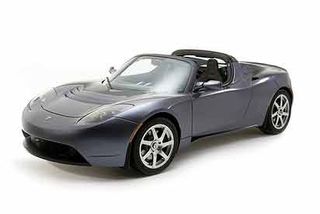Best Buy Aims to Sell Americans on Electric Cars

WASHINGTON D.C. – This could be the future of electric cars: choosing a vehicle at the local Best Buy and then getting a personal visit from the electronic retailer's Geek Squad to prep for installation of the home charging station.
It's no far-fetched fantasy. A Best Buy representative voiced such possibilities during a panel session about electric vehicles at the ARPA-E Energy Innovation Summit here. Experts on the panel predicted that the electric car could become the ride of choice in the U.S. by around 2020.
"We think [charging equipment] will be purchased and sold in the future like hardware items today," said Chad Bell, senior director of the personal mobility new business solutions group at Best Buy.
Best Buy may even become an electric car dealer down the road — or at least display such vehicles in their stores, Bell said. He added that the company's stores "probably get more traffic in a week's time than some [car] dealers get in a year," which could also help expose the vehicles to a gadget-loving crowd of American consumers.
Either way, Best Buy appears eager to help Americans to feel comfortable with their future electric rides by putting a familiar face on the initiation process. A few of the company's stores already feature electric vehicle charging stations.
Bell pointed to the company's roving Geek Squad, which already helps consumers with computer problems and other issues at home.
"We really want to solve the tech problem for the consumer," Bell said.
Sign up for the Live Science daily newsletter now
Get the world’s most fascinating discoveries delivered straight to your inbox.
The ARPA-E (Advanced Research Projects Agency-Energy) summit runs through March 2.

